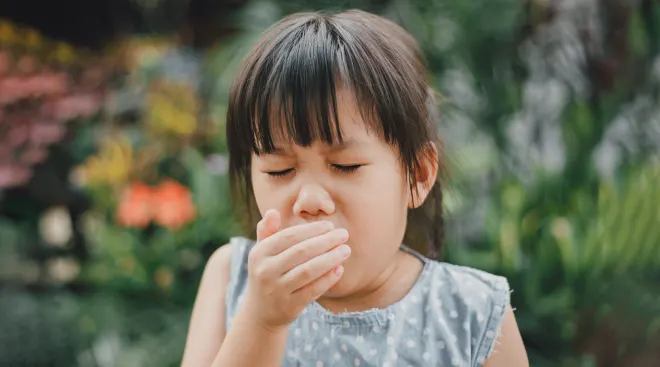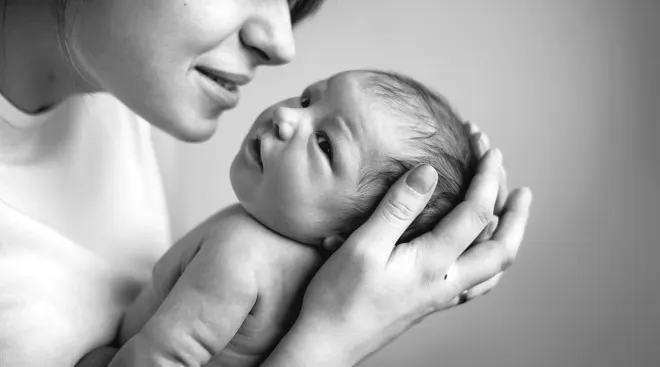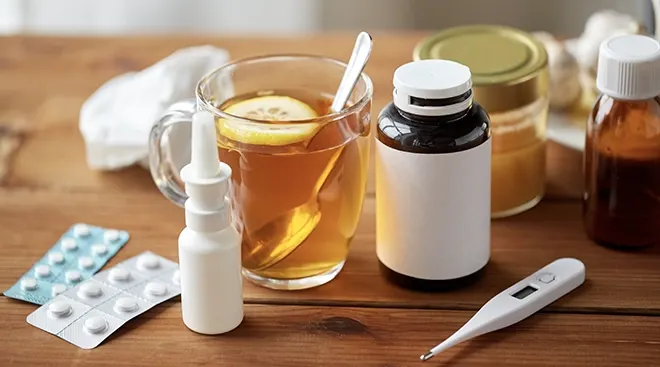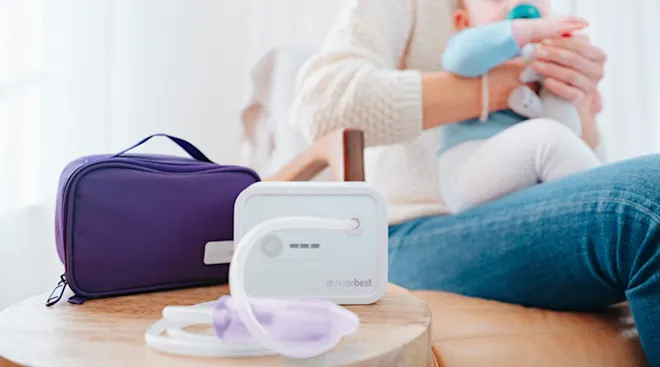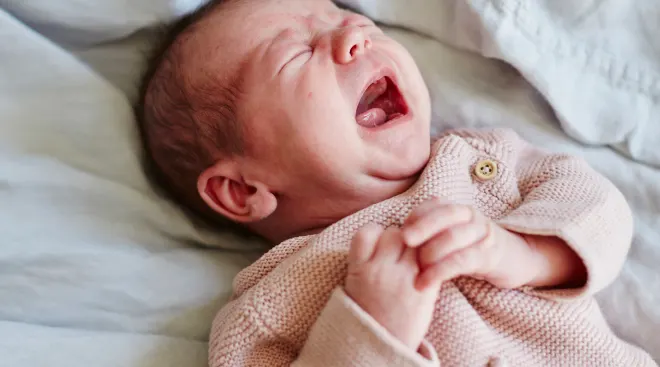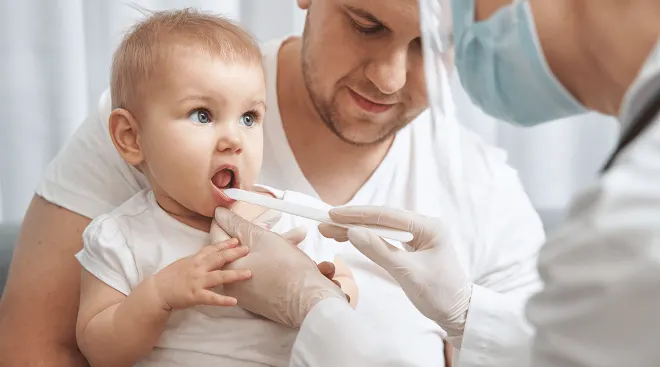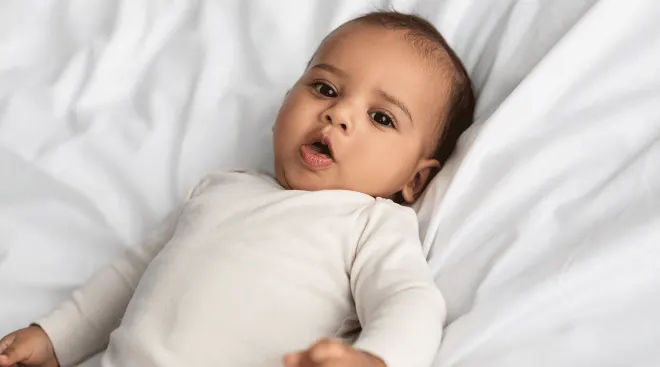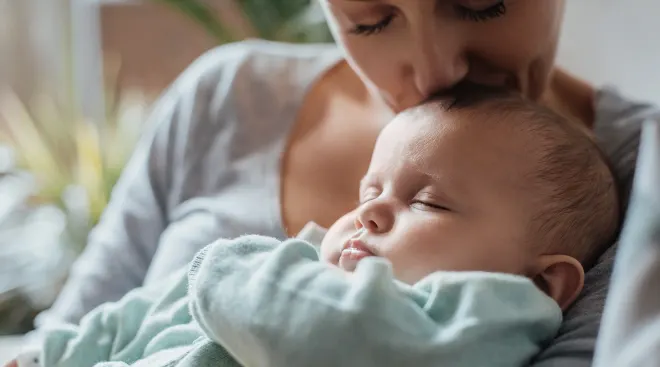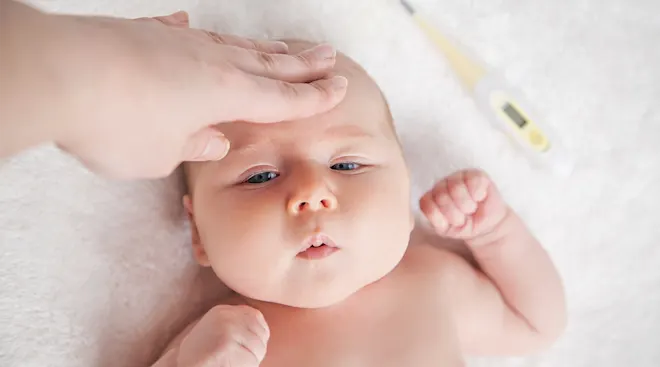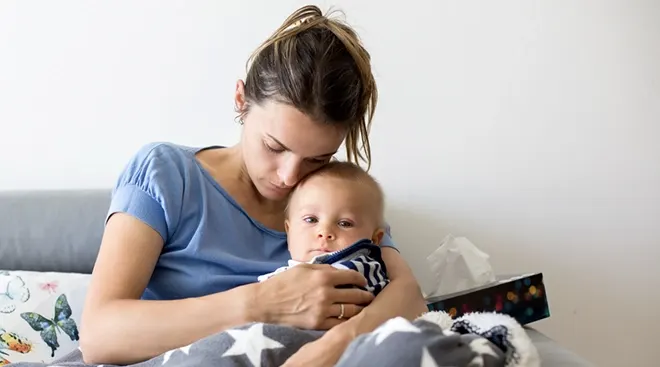Why Your Newborn Might Have a Lip Blister
Babies are known for their adorably petite pouts. As a doting parent, you probably spend hours watching your little one their tiny mouth to smile, breathe and make sweet sounds. So if you spot a bulge or newborn lip blister, you might be concerned. While most newborn lip blisters are harmless, they’re definitely something to keep an eye on—and some may warrant a trip to the pediatrician. Here’s what to know.
Have you spotted an external bump on baby’s mouth? Here are some of the most common culprits potentially causing a blister on baby’s lip.
Sucking blister from breastfeeding
The most common cause of newborn lip blisters is sucking. Basically, a sucking blister is a blister on baby’s lip from breastfeeding. It pops up as a result of the friction between baby’s lips and mom’s skin, explains Danielle Grant, MD, a pediatrician with Texas Children’s Pediatrics. “Newborns are hungry and can be very vigorous with feeding, which causes the friction,” she adds. The reassuring news? Daniel Ganjian, MD, a pediatrician at Providence Saint John’s Health Center in Santa Monica, California, says that this type of newborn lip blister typically appears within the first few days of life and resolves on its own within a few short weeks.
A sucking blister from breastfeeding usually resembles a “raised, fluid-filled bump,” Grant says, but it can also look dry and crack in the middle. Usually these crop up towards the center of the upper lip, but in some cases they can extend over the majority of the lip.
Cold sore
A cold sore is caused by the herpes simplex virus (HSV), which is carried by more than half of Americans between the ages of 14 and 49. Typically, these lip blisters are “spread through close contact with someone who has a cold sore,” Ganjian says.
Unlike sucking blisters, a cold sore on baby’s lip can look like a cluster of small blisters on or around the lips. These can be fluid-filled, and “the surrounding skin can be inflamed and red,” Grant says. A cold sore may be painful for baby and won’t necessarily be positioned in the center of the upper lip like a sucking blister. While they’re typically no big deal for older kids and adults, cold sores on a newborn’s lips could constitute a medical emergency (more on this below).
Rare genetic disorders
While your little one’s lip blister is much more likely to be a sucking blister or cold sore, there’s a slight chance it could be a sign of a genetic disorder. “There are rare genetic disorders of the skin that can cause blistering of the lips, as well as other parts of the body,” Grant says. But babies with lip blisters caused by a genetic disorder will usually have other symptoms too, like poor feeding, poor weight gain and possibly a fever, she adds.
For the most part, treatment for baby’s lip blister will depend on the cause. But for a sucking blister from breastfeeding it should go away with time. “I reassure parents of newborns that a sucking blister from breastfeeding will get better on its own as the skin learns to strengthen from this new action of breastfeeding,” Grant says. Still, you can use a small amount of an over-the-counter ointment like Vaseline or Aquaphor if the blister is dry or cracking.
On the other hand, if you think your child has a cold sore, it’s important to call your pediatrician. “In newborns, cold sores can be serious and require medical attention,” Ganjian says. Newborns with HSV need to be given IV antiviral medication.
If your child has a lip blister and you’re not sure what’s causing it, Ganjian says it’s a good idea to get it checked out by a pediatrician. “They can advise on whether the blister is a sucking blister or a cold sore, and recommend the best course of action,” he says.
There are a few things you can do to lower the risk your newborn or baby will develop lip blisters.
- Check baby’s breastfeeding latch: “Make sure [your newborn is latching well and not superficially,” advises Grant. “If the latch is comfortable, then that’s a good sign.” But if baby’s latch is painful, she recommends consulting a lactation specialist for tailored guidance and tips.
- Avoid close contact with anyone who has a cold sore: Because they’re passed through direct contact, Ganjian recommends keeping baby away from anyone with an active cold sore. It’s also a good idea to avoid kissing baby’s lips and to keep others from kissing baby on or around the mouth area.
- Practice good hand hygiene: Wash your hands with soap and water, scrubbing for at least 20 seconds before rinsing, especially before feedings, Ganjian advises.
Overall, it’s a good idea to flag any lip blisters you notice to your child’s provider. “Your pediatrician will see your newborn often in the first month of life. You can address the lip blister at those regular visits, or sooner if you’re worried baby’s in pain, or if other blisters are present on the body or lips,” Grant says.
Please note: The Bump and the materials and information it contains are not intended to, and do not constitute, medical or other health advice or diagnosis and should not be used as such. You should always consult with a qualified physician or health professional about your specific circumstances.
Plus, more from The Bump:
Daniel Ganjian, MD, is a pediatrician at Providence Saint John’s Health Center in Santa Monica, California. He received a Bachelor's degree with highest honors from the University of California, Los Angeles, and a medical degree from the University of California, Irvine.
Danielle Grant, MD, is a pediatrician with Texas Children’s Pediatrics. She earned her medical degree from the University of Connecticut School of Medicine and completed her residency at Baylor College of Medicine and Texas Children’s Hospital in Houston.
Learn how we ensure the accuracy of our content through our editorial and medical review process.
Navigate forward to interact with the calendar and select a date. Press the question mark key to get the keyboard shortcuts for changing dates.







































